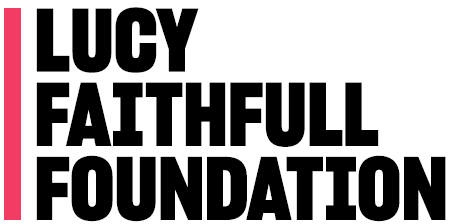There is hope: How protective parenting assessments and interventions help protect children
Child sexual abuse is devastating, both for the children involved and their families.
We’ve been working to prevent this harm for more than 30 years using a whole range of activities, including through assessments and interventions with everyone involved in, or affected by, abuse.
One of our growing areas of this work is protective parenting assessments.
What is protective parenting?
To be a protective parent means protecting your child from harm in any form. Within our work at the Lucy Faithfull Foundation, we focus on how parents and carers can protect their children from sexual harm.
“It’s not an easy subject to tackle,” says Emma King, Head of Clinical Services (Adults) and author of our new Faithfull Paper on the topic.
“We provide input to families at what is often a very difficult time in their lives, experiencing the impact of sexual abuse or abuse allegations.”
“Our role is to present a balanced, evidence-based assessment and ultimately, we have to provide a judgement about a parent’s ability to protect their children from sexual abuse, but we have do to this sensitively,” says Emma, who has worked within the field of sexual abuse prevention for over 20 years.
Our expert practitioners use their specialist knowledge to provide assessments and interventions that contribute to decision-making by agencies such as the local authority or the courts, about child contact arrangements, family reunification, and child protection.
Our Protective Parenting interventions are educational, bespoke and adapted to suit the needs of the people we are working with. Within our interventions, we educate and empower parents to safeguard their children effectively.
And we keep a clear goal in mind: to ensure that children are kept safe from sexual harm.
What situations would be appropriate for a protective parenting assessment?
There are a range of circumstances when we might be asked to assess the protective capabilities of a parent. Here are some examples.
- When a woman becomes pregnant within the context of a relationship with a person with child sexual offence convictions or allegations.
- When people who already have children become involved in a relationship with a person with child sexual offence convictions or allegations.
- Parents, carers or foster carers where there are concerns that a child has been, or has alleged to have been sexually abused whilst under their care.
- Parents, carers or foster carers of children or young people who have caused sexual harm to other children.
What are protective parenting assessments aiming to find out?
When we work with someone through a protective parenting assessment, we try to achieve several things.
- Understand their knowledge and acceptance of the sexual harm concerns.
- Assess their general understanding of child sexual abuse and safeguarding.
- Understand the nature of the relationship with the person who poses a risk of sexual harm to children, and with their children.
- Assess their ability to prioritise their children’s needs over their own and over their relationships,
- Consider what safeguarding needs to be implemented, including their ability to supervise contact between the person of concern and the children.
- Identify what support or intervention may be needed.
“We have to ask the right questions that help us build a clear picture. In situations where we can do a dual assessment of the person of concern and the protective carer simultaneously, we get the best results: assessing risk and protective ability together,” said Emma.
“We have to think about how the family can move forward and what needs to be in place for the children to be safe,” she added.
What to think about when delivering protective parenting assessments
- Report live safeguarding issues such as further disclosures.
- Ongoing legal issues cannot delay safeguarding decisions.
- Listening to the professionals involved whilst also coming to your own evidence-based conclusions.
- A person’s experience of engagement with child protection processes.
- Having support and guidance on hand
- How to help families navigate their way through child protection processes that they are engaged with.
- Gathering information from all involved is key
- As professionals, work with each other to come to ways forward
- Early intervention can reduce the risk of escalation.
- Consider the context of the (alleged) behaviour; the nature of the abuse, the range of issues facing the family, emotional functioning, cultural considerations, individual vulnerabilities and the impact of trauma.
Emma has seen first-hand the profound effect that sexual abuse concerns can have on the family.
“In my experience, family members are often significantly adversely affected when sexual abuse concerns are raised regarding children in their care,” she says. “They often feel punished by their association with a person who has, or has been alleged to have, caused sexual harm to a child. The impact can be truly devastating,” added Emma.
So, for Emma, it’s crucial to show empathy throughout the process.
“I sometimes reflect on how it would feel to be in this situation,” she says. “How would it feel to discover sexual abuse concerns within my family?” Have my children been harmed? Has someone I love done this? What does it say about me? Should I have known? How can we ever get through this? These are the real questions faced by people we work with” said Emma
“The parent we are assessing may not be the one who poses a risk of sexual abuse towards a child, but we are asking them invasive questions about their own childhood, their intimate relationships, and about their views of sexual abuse,”
“For anyone required to undertake an assessment of their ability to protect, it can feel like their capability as a parent is being brought into question. However, these parents play a central role in protecting their children,” Emma explained.
Empathy and hope
Emma ensures that she brings humanity to every assessment.
“Of course, as a practitioner, I have boundaries and I am professional,” she says. “I’m also a parent, and I can empathise with some of the distress I see in the people I work with. I care that children are safe, and not harmed in any way. It is crucial that we work with families to assess risk thoroughly and respond proportionately. Sometimes this means difficult decisions need to be made that cause further distress.”
Emma and her team engage with a diverse range of different people in protective parenting work.
“Whether I am working with foster carers, mothers, fathers, grandparents or young people, I see and I hear about the stress these people are going through. This can sometimes make people challenging to engage. We have to meet them on their level and engage them in the process, and improve their ability to safeguard,” says Emma.
Emma and her team engage with a diverse range of people in protective parenting work.
Protecting children is the highest priority
And Emma is realistic about the outcome of some of our assessments.
“Absolutely, there can be some cases where hope feels low,” she said. “Where the person of concern poses a significant risk of sexual harm to children, and where the parent or carer of children cannot – for whatever reason – protect their children from sexual harm.”.
“And in those situations, families do not always receive the outcome that they hope for. And the children need to be removed,” Emma added.
Searching for the hope in every situation
If we approach these situations with optimism, we stand the best chance of providing families with a route forward.
“We firmly believe that child sexual abuse is preventable – not inevitable,” explained Emma.
“Our role is to provide input that can help identify risks and improve protective ability, to help families move forward in the safest way for children. Because, after all, protecting children is our highest priority.
“We always search for the hope in every situation.”
Book our services
For more information about our assessments and interventions, click here.
Read more of our research
To read more of our Faithfull Papers, click here.
Share with your networks
Sign up for news & updates
Fill in our newsletter form hereTo support our work to protect children, donate today.
Donate today






